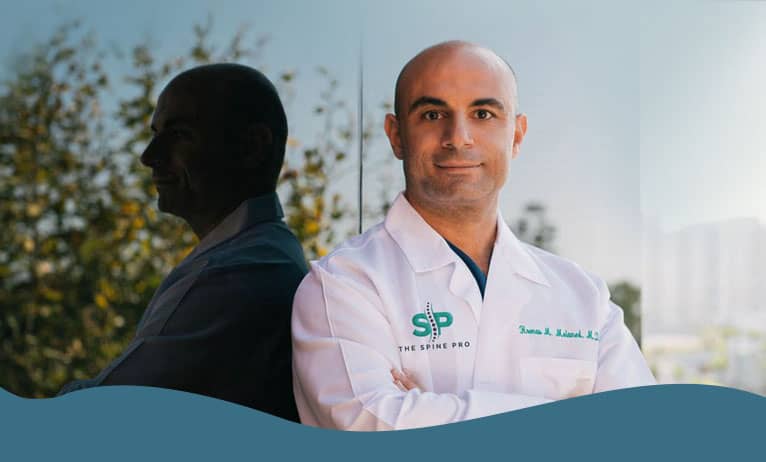Understanding Kyphosis: Causes, Symptoms, and Treatments
Kyphosis, more commonly known as a round back, is a medical condition characterized by an excessive forward curvature of the spine. There are several types of kyphosis, including postural, Scheuermann’s, and congenital. This condition may affect people of all ages. However, an increased curvature in the thoracic spine starts at around age 40.
To assist you in treating and preventing this condition, The Spine Pro has provided a comprehensive guide to understanding kyphosis. Having knowledge about the condition, its causes, and its symptoms may help you make informed decisions about the best treatment plan and prevention methods.
Causes of Kyphosis
There are several reasons why you may have a curvature in your spine, including poor posture, abnormally shaped vertebrae, osteoporosis, and cervical spondylosis. At The Spine Pro, we can help you identify the underlying cause of your condition so you can get the right treatment and prevent it from worsening.
Poor Posture
When you spend too much time in a seated position, you may develop a habit of slouching. This can lead to an excessive curvature of the spine. Carrying heavy backpacks or purses may also contribute to poor posture. To correct your posture and reduce the curvature, focus on maintaining an upright position while sitting or standing. Keep your shoulders back, chest lifted, and chin parallel to the ground.
Scheuermann Disease
Scheuermann disease is a condition that occurs when the vertebrae of the spine are abnormally shaped. This creates an increased curvature in the thoracic spine, resulting in kyphosis. The cause of this disease is unknown, but it is believed that a hereditary factor may be involved. This condition typically affects adolescents around age 12 to 17 and is more common in men. Pain in the hyperkyphotic region may indicate Scheuermann disease.
Osteoporosis
Those with osteoporosis, a condition characterized by the weakening of bones due to decreased bone mass and density, may develop kyphosis. This is because the vertebrae become weakened, leading to a curvature of the spine. In addition, those with osteoporosis are more susceptible to vertebral fractures and vertebrae compression, both of which can lead to a round back.
Cervical Spondylosis
Cervical spondylosis, a degenerative condition that affects the neck, may also cause kyphosis. As the discs between the vertebrae in the neck wear down, the spine may begin to curve forward. This condition is more common among those over the age of 50. It is crucial to maintain proper posture and regularly stretch the neck muscles to help avoid this condition.
Kyphosis Symptoms
The most apparent symptom of kyphosis is a rounded upper back. However, other symptoms may include back pain, stiffness, and fatigue. In severe cases, kyphosis may cause difficulty breathing, as the curvature of the spine can compress the lungs. Occasionally people with the condition may experience pinched or compressed nerves, which may lead to numbness and weakness in the extremities.
Treatment Options for Kyphosis
At The Spine Pro, our team will work with you to identify the underlying cause of your condition and develop a tailored treatment plan to address your specific needs. Common treatments include physical therapy, bracing, and surgery.
Physical Therapy
Physical therapy can be an effective treatment for mild to moderate cases of kyphosis. Exercises that target the muscles of the back and core can help improve posture and reduce the curvature of the spine. Moreover, physical therapists can teach you the proper techniques for avoiding further curvature and maintaining a healthy posture.
Bracing
Bracing may be recommended for some patients. Wearing a brace can alleviate discomfort and potentially slow down or halt the progression of the curvature. Your doctor will choose the suitable brace type for you after careful consideration. These braces can assist you in maintaining a good posture. It may be recommended to wear the brace while sleeping or during certain activities.
Kyphosis Surgery
Kyphosis surgery is only recommended in severe cases when other treatment methods have failed to improve the condition. Although surgery may correct the curvature in the spine and relieve pain, it carries a high risk of complications. Therefore, this surgery should only be used as a last resort.
Treat Kyphosis at The Spine Pro
Don’t let kyphosis take control of your life. Take charge of your health and book an appointment with The Spine Pro today. We have the expertise to diagnose and treat your condition, helping you get back to living life to the fullest. Contact us today to schedule a consultation and start your journey toward a healthier, happier you.






